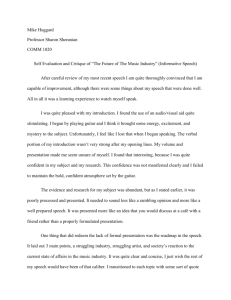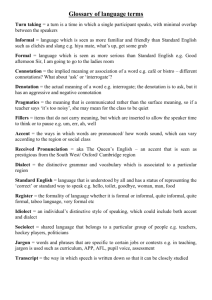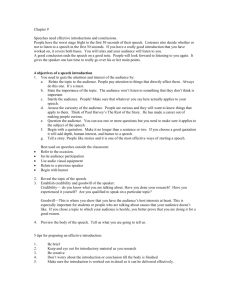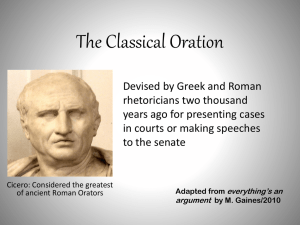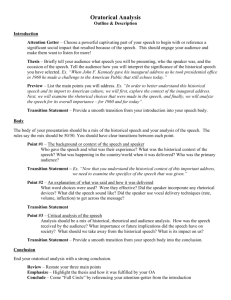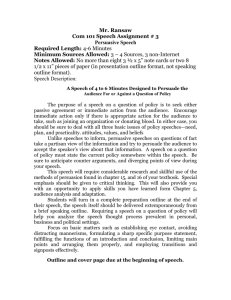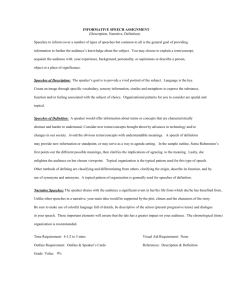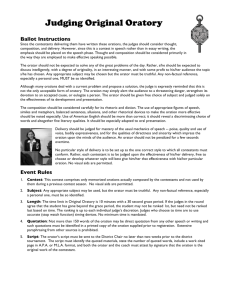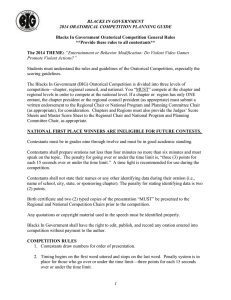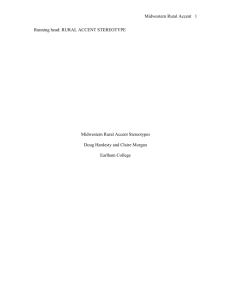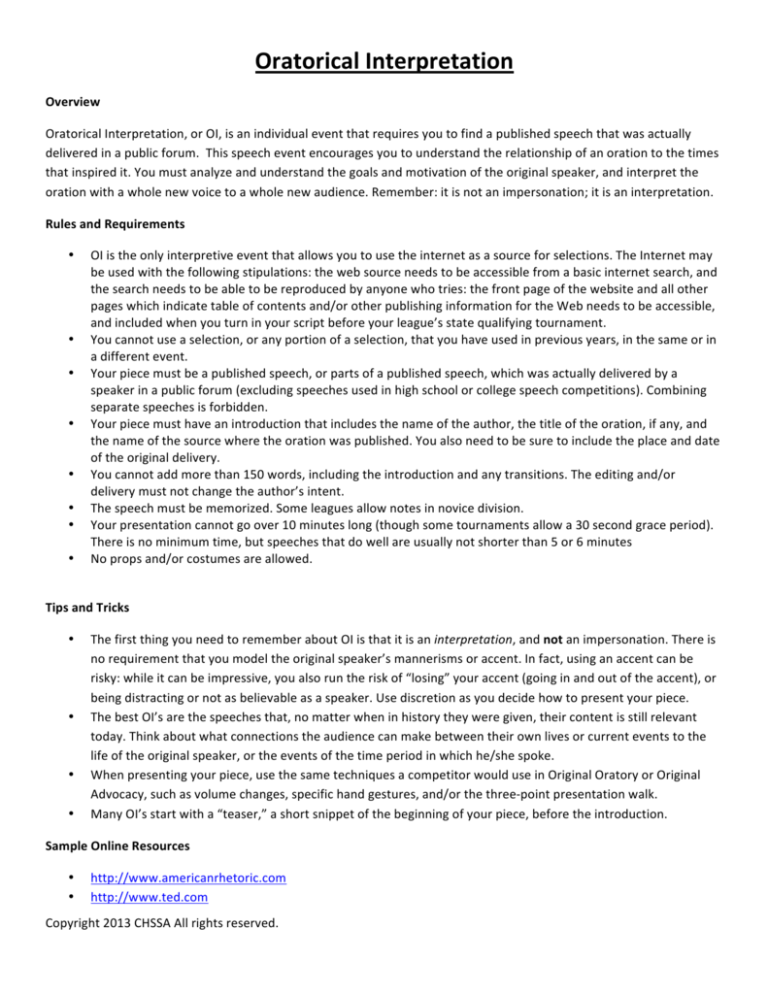
Oratorical Interpretation Overview Oratorical Interpretation, or OI, is an individual event that requires you to find a published speech that was actually delivered in a public forum. This speech event encourages you to understand the relationship of an oration to the times that inspired it. You must analyze and understand the goals and motivation of the original speaker, and interpret the oration with a whole new voice to a whole new audience. Remember: it is not an impersonation; it is an interpretation. Rules and Requirements •
•
•
•
•
•
•
•
OI is the only interpretive event that allows you to use the internet as a source for selections. The Internet may be used with the following stipulations: the web source needs to be accessible from a basic internet search, and the search needs to be able to be reproduced by anyone who tries: the front page of the website and all other pages which indicate table of contents and/or other publishing information for the Web needs to be accessible, and included when you turn in your script before your league’s state qualifying tournament. You cannot use a selection, or any portion of a selection, that you have used in previous years, in the same or in a different event. Your piece must be a published speech, or parts of a published speech, which was actually delivered by a speaker in a public forum (excluding speeches used in high school or college speech competitions). Combining separate speeches is forbidden. Your piece must have an introduction that includes the name of the author, the title of the oration, if any, and the name of the source where the oration was published. You also need to be sure to include the place and date of the original delivery. You cannot add more than 150 words, including the introduction and any transitions. The editing and/or delivery must not change the author’s intent. The speech must be memorized. Some leagues allow notes in novice division. Your presentation cannot go over 10 minutes long (though some tournaments allow a 30 second grace period). There is no minimum time, but speeches that do well are usually not shorter than 5 or 6 minutes No props and/or costumes are allowed. Tips and Tricks •
•
•
•
The first thing you need to remember about OI is that it is an interpretation, and not an impersonation. There is no requirement that you model the original speaker’s mannerisms or accent. In fact, using an accent can be risky: while it can be impressive, you also run the risk of “losing” your accent (going in and out of the accent), or being distracting or not as believable as a speaker. Use discretion as you decide how to present your piece. The best OI’s are the speeches that, no matter when in history they were given, their content is still relevant today. Think about what connections the audience can make between their own lives or current events to the life of the original speaker, or the events of the time period in which he/she spoke. When presenting your piece, use the same techniques a competitor would use in Original Oratory or Original Advocacy, such as volume changes, specific hand gestures, and/or the three-­‐point presentation walk. Many OI’s start with a “teaser,” a short snippet of the beginning of your piece, before the introduction. Sample Online Resources •
•
http://www.americanrhetoric.com http://www.ted.com Copyright 2013 CHSSA All rights reserved.


